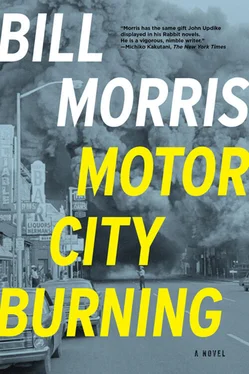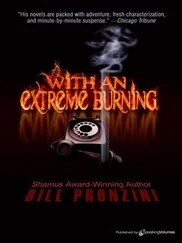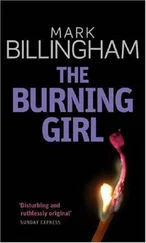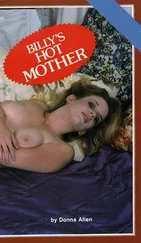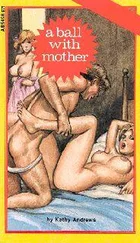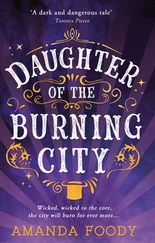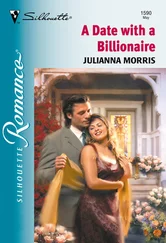Just before the sun came up, he finally had another breakthrough from an unexpected source: a newspaper clipping. Some of the people in the movement were crazy about collecting their press clippings, but Willie had never much cared for it even though he worked for a time in Snick’s press office. Most of the reporters and photographers he dealt with were white, and while many of them were sympathetic to the cause, a few even bright and crazy brave, he didn’t believe they could understand what the students were going through or tell their story straight.
But for some reason he’d saved the Atlanta Constitution from May 15, 1961. The badly yellowed front page was dominated by the now-famous photograph of a burning Greyhound bus outside Anniston, Alabama. The photographer must have been crouching on the shoulder of the road. In the foreground a white man and a white woman are sitting on the ground, stunned and obviously in pain. Behind them two unidentified black men are looking at the bus, their backs to the camera. They’re looking at the open door of the bus with the S&H green stamps logo, at the sprinting dog that appears to be spewing smoke from its mouth, at the black smoke gushing out of the shattered windshield and the open side windows.
Willie remembered why he’d saved this newspaper: He was the unidentified black man on the far left.
Suddenly he could smell the noxious stench of burning rubber, feel the pain where his left pants’ leg had caught fire. He had nearly been burned alive inside that bus. As he studied the picture he even remembered the name of the black man standing beside him. It was Moses Newsome, a gutsy reporter with the Baltimore Afro-American who had sat next to Willie on the bus that day, interviewing him, asking him why he’d given up his snug berth at Tuskegee to join the movement. When Willie was in mid-sentence, the driver had pulled the bus off to the side of the road and vanished into the trees. Only then did Willie see the white mob closing in.
He stood up from the desk and snapped off the lamp. His neck and back were stiff, his vision foggy. He got a beer from the refrigerator and went out onto the screened-in porch where he liked to sleep when the nights got suffocating hot. Looking down at the street, watching the first people emerge from their homes and leave for work — a mechanic, a maid, several orderlies and nurses heading to Ford Hospital — he understood that he had learned something important during that long night: What he was looking for was not in his Alabama box, his personal record of the events he had lived through; it was in the recorded history of those events, things like the picture of the burning bus in the Atlanta newspaper.
He plopped into the overstuffed chair and propped his brogans on the railing. He was exhausted but happy. He marveled at the string of little things that had happened to him in the past week — a chance meeting with two strangers at a ballpark, a chance meeting with a car dealer, a ride in his uncle’s new Deuce, the discovery of a snapshot and a journal entry and a famous picture of a burning bus. It felt like a beginning.
He understood that he would have to go outside himself in order to see into himself. Oakland Hills was closed on Mondays, so he would catch a few hours of sleep and then walk over to the library on Woodward and start the monstrous job of scrolling through newspaper microfilm from early 1960 through the summer of 1963.
There was no doubt in his mind that the moment of conception he was looking for was hidden in a newspaper article or photograph, and he believed in his heart he was destined to find it. And once he found it, only one thing would be able to stop him: the Detroit police.
DOYLE SPENT THE MORNING IN HIS GARDEN, carefully selecting flowers for a bouquet. He wanted to wow Cecelia without looking like he was trying too hard. As he was on his way out the door a few minutes past eleven, his telephone rang. He considered ignoring it, but he put down the flowers and picked up the receiver. You never know.
It was Jimmy Robuck calling to say he wouldn’t be able to meet Frank at the ballpark, as they’d planned, because Walt Kanka had just called in a favor — and Jimmy had to go downtown to help him bang on Alphonso Johnson, the prime suspect in the murder of Carlo Smith, Vic #42. Though Doyle wanted to get off the phone, he listened while Jimmy gave him an elaborate play-by-play of what he had in mind for Alphonso. Just before he hung up, Jimmy said, “You don’t need no third wheel no how. Have fun. Hope you get lucky.”
“You too, Jimmy.”
As he rode the elevator to the twentieth floor in Cecelia’s building, Doyle checked his watch. Fifteen minutes late, already in the dog house before the first date had even begun. Story of my life, he thought, stepping off the elevator.
Cecelia’s door opened and she said, “You’re late.”
“I’m sorry. . got a phone call from my partner as I was walking out the door. . couldn’t get rid of him. . Brought you a little something.”
“For me ?” she said, accepting the flowers. She needed both hands to hold the bouquet of black-eyed Susans, irises, snapdragons and pink peonies. From the look on her face, Doyle could tell he’d overdone it. Strike two before he got in the door.
While she was putting the flowers in a vase in the kitchen, Doyle walked straight to the picture window. He could see his reflection in the glass. He’d worn a sport coat with a houndstooth check over a green crew-neck sweater because Vicki Jones had told him the sweater picked up the green in his eyes. She wasn’t the first woman to tell him his eyes were his best feature. His jeans were faded, and his oxblood loafers, polished once a week, glowed like old wood.
Cecelia came back from the kitchen and joined him by the window. He was holding on to the windowsill because the altitude was making him dizzy. “That’s some view you’ve got,” he said. There were vistas to the east, south and west. He was pointing upriver, east. “Look, there’s Belcatraz!”
“That’s Belle Isle.”
“Yeah, but us cops call it Belcatraz. So many people got arrested during the riot that we ran out of places to put them. They wound up packed into the garage at headquarters, in school gyms, in fire stations, even in the bath houses at Belle Isle. Ergo, Belcatraz.”
“That’s the first time I’ve heard a cop say ergo.” She was smiling. Maybe he hadn’t overdone it with the flowers.
“It’s the Jesuits’ fault,” he said. “They made us study Latin and logic.” Now he was pointing west, toward downtown. “There’s headquarters — it looks so puny from way up here! And the Frank Murphy courthouse. And Greektown — I can almost smell the garlic. You can even see the poor man’s Golden Gate.”
“Is that what cops call the Ambassador Bridge?”
“No, that’s just me. I spent a week in San Francisco last year — best food I ever ate. Every time I look at the Ambassador Bridge now I think of the Golden Gate, and every time I see Belle Isle I think of Alcatraz.”
“Speaking of food, it’s almost ready. Would you like a cup of coffee or — I’m having a Bloody Mary.”
“Bloody Mary sounds good.”
“Hope you like ’em spicy.”
“I like everything spicy.”
When she came back with the drinks, he was sitting on the chocolate-colored sofa studying the décor of this beige cocoon like it smelled bad.
“What’s the matter, don’t like the furniture?” she said, handing him his drink.
“No, no, no. . ”
“Don’t worry. I’m going to redecorate, get rid of all this brown crap and chrome. Place feels like a cheesy nightclub. But I had to wait for the settlement to come through.”
Читать дальше
